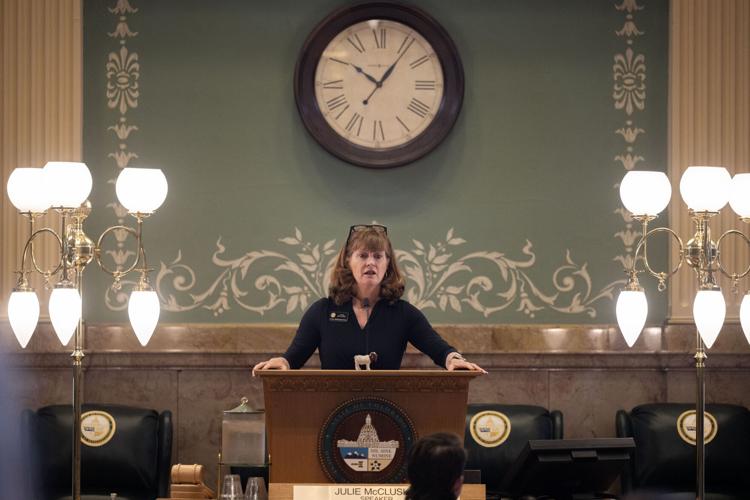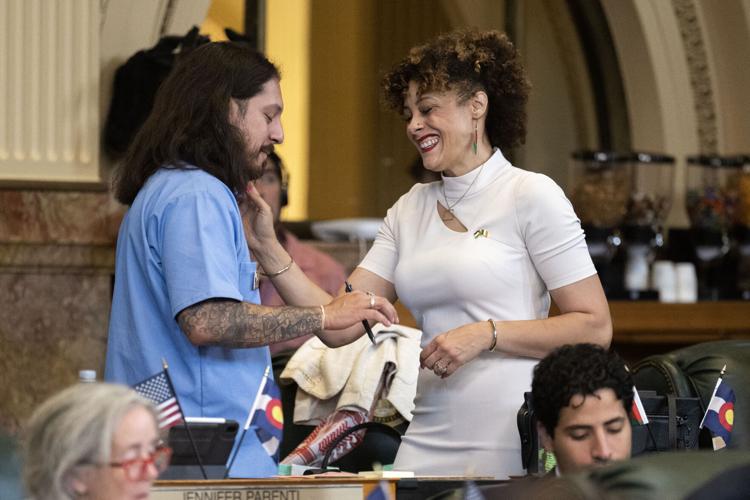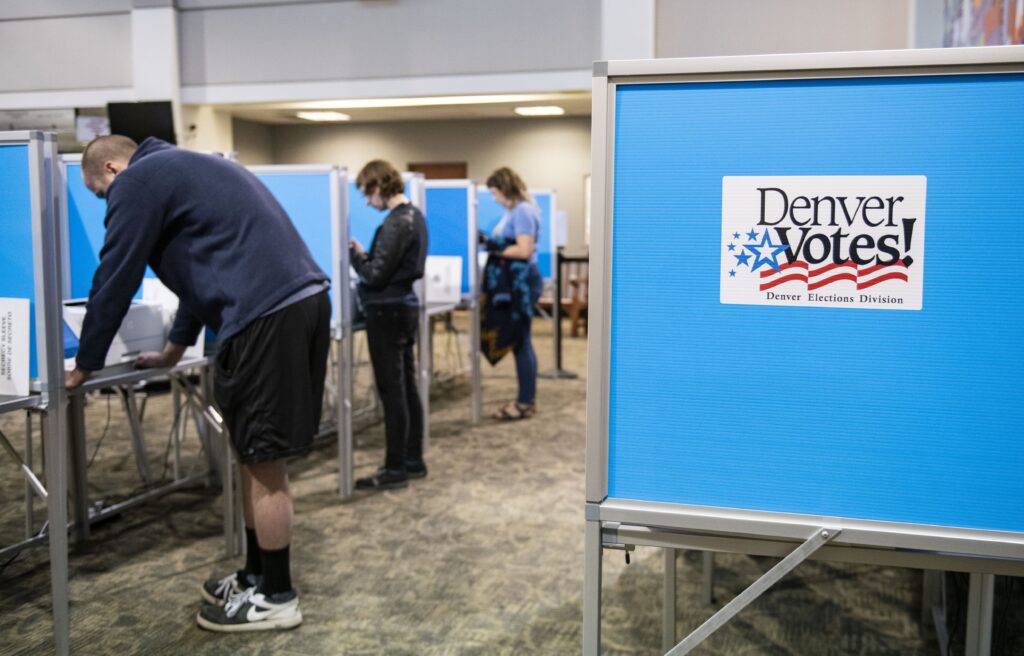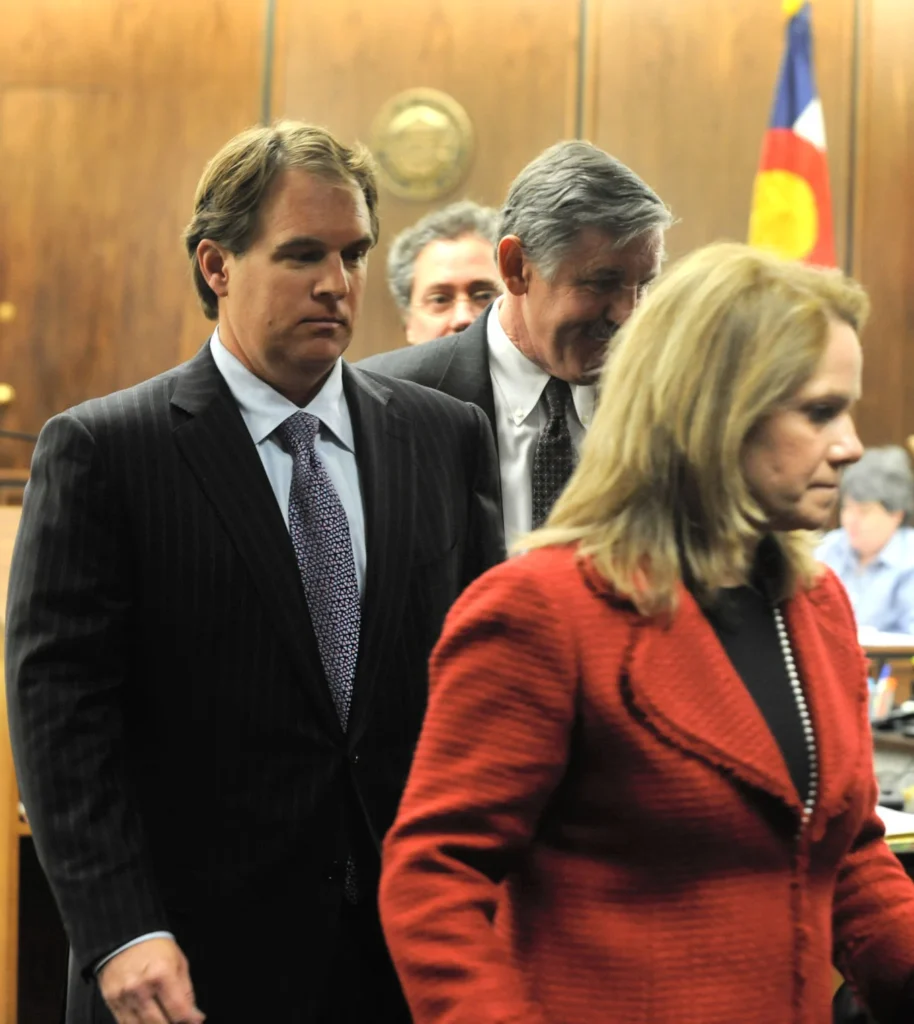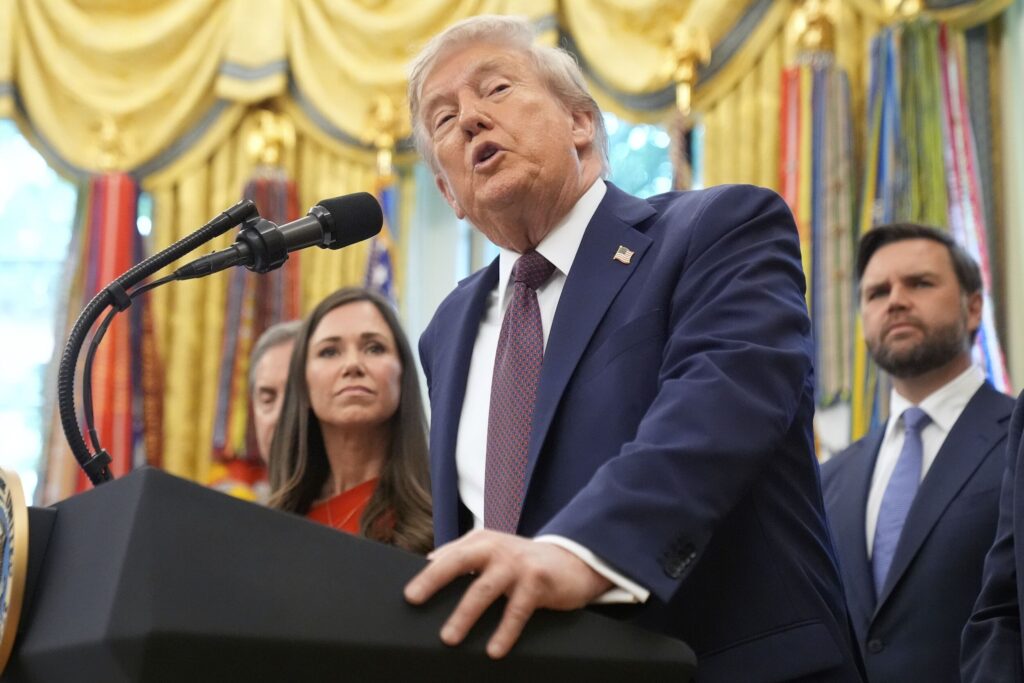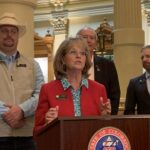Colorado House approves deal to reduce property tax liabilities, paving the way for ballot initiatives’ withdrawal
Colorado House lawmakers on Wednesday moved forward with a deal aimed at reducing property tax liabilities for residential and business owners and paving the way for the withdrawal of two ballot initiatives contingent on the legislation’s enactment.
State senators still need to give the measure a final approval, but it is expected to counter less resistance in that chamber.
The state House approved the compromise on a 45-18 vote after hours of debate.
The vote ultimately wasn’t close, and it erased fears that the deal would fall through, leading to an expensive battle at the ballot box over the two tax initiatives already certified by the Secretary of State’s Office.
But the final debate, and the vote that followed, showed progressive Democrats’ displeasure with the way the deal had been crafted as well as amendments placed on the bill on Tuesday, the final set of negotiations on the measure.
Out of the 18 “no” votes, 15 came from Democrats. And, of those, 14 emanated from the caucus’s progressive wing. Three Republicans from the far-right of the caucus also voted against.
The deal bill — House Bill 24B-1001 — was crafted by legislative leaders, Gov. Jared Polis and representatives of two conservative groups, Advance Colorado and Colorado Concern. The conservative groups have placed on the November ballot Propositions 50 and 108, which lawmakers said would result in devastating budget cuts, with one estimate pegging the impact to the state’s general fund budget at $3 billion, just shy of 25% of the total available from this revenue pot.
The initiatives’ proponents argued that the measures are necessary because lawmakers and the governor have failed to provide sufficient and meaningful relief to Coloradans facing massive property tax hikes, in some urban counties as high as 50%.
Proposition 108, which seeks statutory changes, would reduce residential property assessment rates to 5.7% and non-residential property assessment rates to 24%. The state would be required to backfill the lost property tax revenue. Proposition 50, which seeks to amend the state constitution, would impose a 4% annual cap on property tax revenues.
The two groups said they would pull their measures from the ballot if the deal passed and is signed by the governor. They have until Sept. 6 to withdraw those measures.
The debate was fierce. Progressive Democrats accused the governor and their colleagues who reached the deal of negotiating with “oligarchs,” using the rich-poor dichotomy to press their points.
A Republican who balked at the deal called it a “lie.”
Supporters, meanwhile, said the compromise is wise and lawmakers, in fact, heard the people’s plea for help against soaring tax liabilities, adding the legislation provides certainty and stability.
“The decision was made to negotiate with oligarchs,” said Rep. Stephanie Vigil, D-Colorado Springs. “This is a very small number of unelected, unaccountable individuals with extremely deep pockets and boundless capacity to run ballot measures. They don’t operate with public scrutiny.”
“(Money) allows them a special audience with the administration that constituents, your elected representatives could never hope to get,” she said.
Rep. Tim Hernandez, D-Denver, said the deal that was cut will result in a 5% increase in property taxes in his district, while people who own $5 million homes will see a reduction.
“We call that property tax relief? Instead, our governor and … this legislature is enacting emergency relief for the wealthy and the rich who have the social, political and economic capital to pull dangerous ballot measures that threaten the schools that we’re all fighting for,” he said. “This is a special session for special interests.”
Among the Republicans who spoke against the bill, Rep. Scott Bottoms, R-Colorado Springs, said he will not vote for the measure but wouldn’t vote for Proposition 108, either.
As for the main bill, “the entire thing is a lie and we’re being played,” he told his colleagues.
“None of us have achieved everything we wanted here,” said Rep. Anthony Hartsook, R-Parker, who voted for the bill.
At the debate’s conclusion, the sponsors urged a “yes” vote.
“I know it’s hard,” House Minority Leader Rose Pugliese said. “Regardless of how you vote today, I hear you.”
“I hear you. You asked for help,” she said, directing her message to district constituents and state residents.
House Speaker Julie McCluskie added that lawmakers have strengthened her faith in the legislative branch. The debate has been “fair, important and critical to how this body moves forward,” she said, adding that the testimony has been powerful on the challenges of affordability.
“You captured the heart of what we hear (from Coloradans),” she said. “This is a moment to govern with wisdom and maturity, and to stand together in a bipartisan way to move the state forward.”
The bill will do the following:
-Cut the effective residential property tax rate to 6.3% or 6.4%, depending on assessment growth
-Reduce the commercial property tax rate to 25%
-Cap growth to 5.25% for local governments and 6% for inflation growth, whichever is greater, for school districts
-Ensure a “clear and non-biased ballot language” in the required vote of the people to opt out of the local cap
In a statement after the vote, Pugliese said, “Our local governments need stability to plan their budgets and provide essential services. It also protects the Homestead Exemption for our seniors, disabled, and veterans in our communities. Our constituents are looking to us for help and I am proud of the work we have done in this bill to provide them with additional property tax relief.”
McCluskie said Democrats “are committed to making Colorado a more affordable place to live, and with this bill we’re delivering additional property tax relief in a responsible way while protecting funding for our schools, parks, libraries and community institutions.”
Lawmakers also tackled House Concurrent Resolution 24B-1001. Sponsored by Rep. Mike Weissman, D-Aurora, it would ask statewide voters in November to require local residents to approve any reduction in property taxes sought through a statewide ballot initiative.
It passed out of the House on the bare minimum of votes needed — 44, or two-thirds.
The very last vote came from Rep. Elisabeth Epps, D-Denver, who has long had problems with Weissman, including a fairly public argument during last year’s special session. She initially voted “no” and then switched to “yes,” giving Weissman the last vote to get it out of the House.
Finally, House lawmakers greenlighted House Bill 24B-1003, which seeks to make permanent a business personal property tax exemption for agricultural equipment, on a vote of 47 to 16.
The House then sent all three measures, including the compromise legislation, to the Senate, which promptly killed Weissman’s proposal.
The Senate Finance Committee unanimously tabled the ballot referral at the request of its sponsor, Sen. Chris Hansen, D-Denver, who is also a co-sponsor of the property tax compromise.
It was virtually certain that Weissman’s measure would not get the 24 votes it needed to go to the ballot, as Democrats hold 23 seats in the Senate but no Republican was willing to vote for it.
That left the Senate with just two bills to debate, after the Senate Appropriations Committee passed HB24B-1001 on a unanimous vote.
K-12 and higher education leaders spoke in favor of the measure, in contrast to Monday’s testimony in the House Appropriations Committee, where firefighters spoke about the cuts they said they will have to deal with.
A bit of a tussle ensued between the main bill’s sponsors — Hansen and Sen. Barbara Kirkmeyer, R-Weld County.
Kirkmeyer told the committee that it was no small feat to get everyone to the table on the deal, with conversations that started back in April. The number one thing on her constituents’ minds is property taxes, she said.
“I want you to start thinking about two-parent families” and the burden placed on them because the legislature has not yet kept its promise, she said, adding the people deserve a tax break.
“We promised it,” she said, referring to short-term solutions lawmakers approved in legislation in the 2021, 2022 and 2023 sessions and from a special session in 2023, and a long-term solution contained in a measure enacted earlier this year.
If Proposition 108 passes, the property tax cuts contained in Senate Bill 24-233, the legislation enacted a few months ago, would be repealed — and there will be no property tax relief in 2025, she said, adding everyone’s property taxes will go up.
“I don’t want to go back to my constituents and say, ‘We blew it,'” she said.
Hansen appeared to take issue with her comments. He said he was proud to work with Kirkmeyer on the compromise legislation. That said, the work he did with “Sen. Bob Rankin was not a failure and I refuse to sit here and have it labeled as such,” he said, referring to the property tax bills he and Rankin sponsored in 2021 and 2022.
Hansen acknowledged those bills were not a long-term solution and blamed the backers of the two ballot measures for their refusal to compromise.
They were one- and two-year bills to prevent giant spikes in property taxes — not “failures,” he said.
The debate over the measure on the Senate floor was relatively brief, dominated by an hour-long filibuster from Sen. Nick Hinrichsen, D-Pueblo.
The legislature decided that SB24-233, the property tax bipartisan deal that came out of the last session, was the right way to go, he said, adding he despised the bill but voted for it anyway.
“Sometimes, you have to vote for minimal harm,” he said.
He complained that, just as lawmakers believed they had done what was necessary, all of a sudden, there’s another deal aimed at preventing the passage of Propositions 50 and 108.
He suggested that voters would reject the two measures, saying, “I have faith in the people (and voters) of Colorado.”
Later, he added that he doesn’t want people in one district voting on issues for another.
The Senate wrapped up the debate shortly after and gave the bill a preliminary “yes.” They also quickly approved the remaining bill dealing with agriculture exemption and adjourned for the day.
Senators still need to give both measures a final vote, and lawmakers are expected to finish their work for the special session on Thursday.


